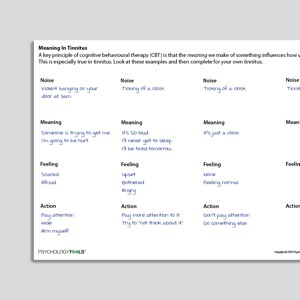Professional version
Offers theory, guidance, and prompts for mental health professionals. Downloads are in Fillable PDF format where appropriate.
Information handout only (PDF)
A copy of the information handout in PDF format.
Editable version (PPT)
An editable Microsoft PowerPoint version of the resource.







